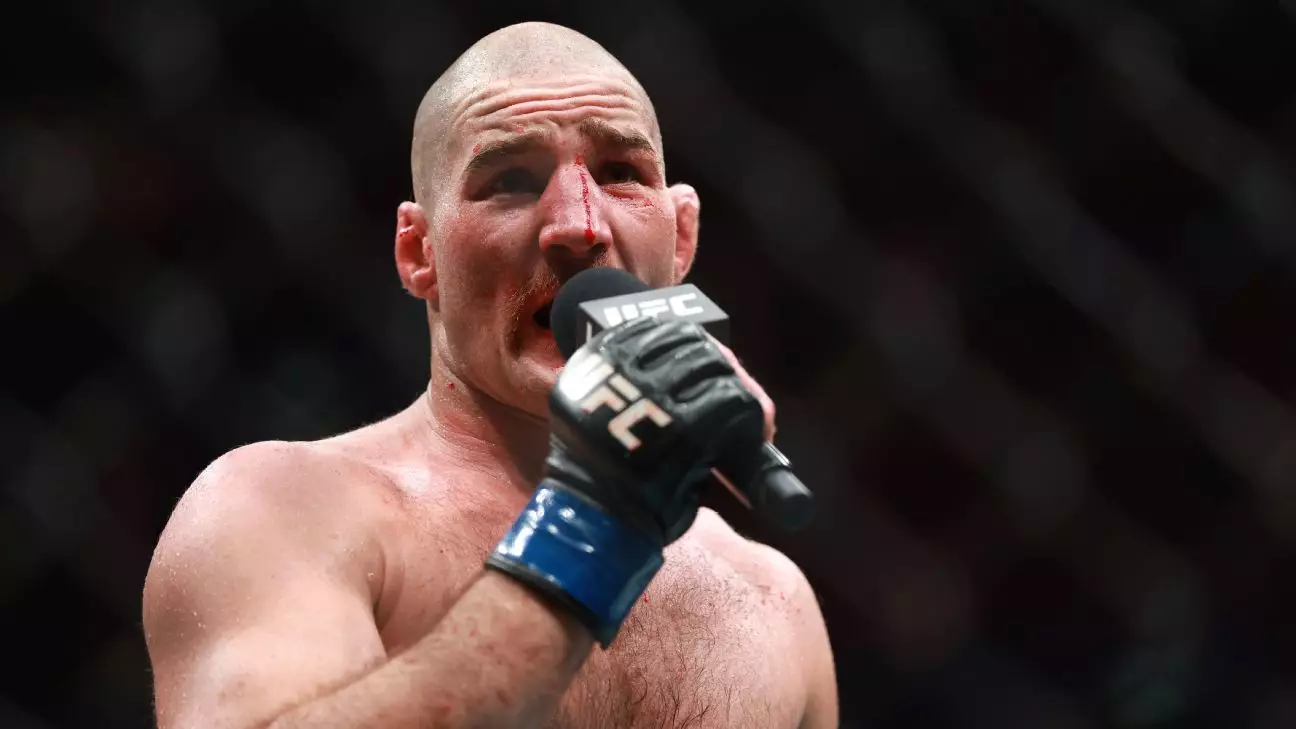Former UFC middleweight champion Sean Strickland’s recent confrontation with his coach, Eric Nicksick, has spotlighted the often fraught relationship between athletes and their trainers, particularly after disappointing performances. The backlash following Strickland’s defeat to Dricus Du Plessis at UFC 312, highlighted by Nicksick’s pointed remarks regarding Strickland’s motivation, reveals the complex layers of expectation, accountability, and personal integrity that are prevalent in competitive sports.
The Aftermath of Defeat: Expectations vs. Reality
Strickland lost the match decisively, facing scores of 50-45, 50-45, and 49-46, which left both fans and analysts scrutinizing his performance. Following such a defeat, the pressure on a fighter to analyze their performance is immense. However, the critique from Nicksick seemed to cut deeper than a standard post-fight assessment. His comments suggested that Strickland appeared unmotivated, even depicting him metaphorically as “sleepwalking” during the bout. Such stark observations from one’s corner can trigger a visceral response, particularly when the athlete feels unsupported or unfairly judged.
It is essential to recognize the psychological toll that follows fights, especially those with clear demarks of failure. Strickland expressed that he found it necessary to defend not only his performance but his commitment to the sport. This defensive posture illustrates how personal identity and professional expectations intertwine, particularly in high-stakes environments like the UFC, where the line between personal and professional can blur disturbingly.
In a candid social media statement, Strickland articulated his frustrations with a rawness that many athletes may shy away from. His revelation that he fought through considerable pain and injury—sustaining a broken arm and later suffering a broken nose—underscores the stubborn resilience that defines many competitors. Strickland’s insistence on his grit—continuing to fight through injury—is a powerful testament to his dedication. Yet, it simultaneously invites the question: how much should athletes sacrifice for their craft, and at what point does this persistence cross into recklessness?
Strickland’s frustration with Nicksick’s public remarks raises the aspect of loyalty and mutual respect in trainer-fighter relationships. He mentioned the possibility of seeking alternative corner men within the Xtreme Couture camp, hinting at the broader notion that such dynamics can shift dramatically after a single performance. The risk of losing a coach after a disappointing fight could symbolize not just a tactical shift, but an emotional rift that could affect ongoing training.
Further complicating the situation is the role of media and public dialogue surrounding athletes. In an era where athletes are expected to perform not just in the ring but also in the realm of social media and public perception, the consequences of even a casual remark by a coach can escalate. Nicksick’s comments, made on “The Ariel Helwani Show,” were not just a critique but also a form of public declaration that could have long-lasting impacts on Strickland’s trajectory in the sport.
Strickland’s decision to publicly respond to Nicksick illustrates his understanding of these dynamics; he wanted to reclaim the narrative and ensure his supporters were aware of the challenges he faced leading up to the rematch. His response highlights an athlete’s struggle to manage both their physical capabilities and their psychological standing in the eyes of coaches, fans, and the media.
What Lies Ahead: Healing and Growth
Moving forward, the implications of this interaction between Strickland and Nicksick suggest the importance of open communication in sports coaching. For Strickland, healing from both physical injuries and emotional turmoil post-fight could define his future performance. Whether he chooses to maintain professional ties with Nicksick or seek new coaching guidance, it will be a process rooted in self-reflection and determination to return to form.
The dynamic between Sean Strickland and his coach Eric Nicksick encapsulates the raw emotions involved in professional fighting. This episode serves as a stark reminder of how thin the veneer of success in sports can be, and how quickly relationships can shift under the weight of public scrutiny and personal expectations. Athletes, coaches, and fans alike are left to ponder: how can one strike a balance between accountability and support in the fierce world of competitive sports?

